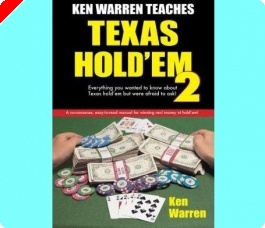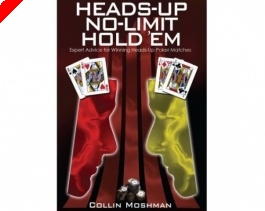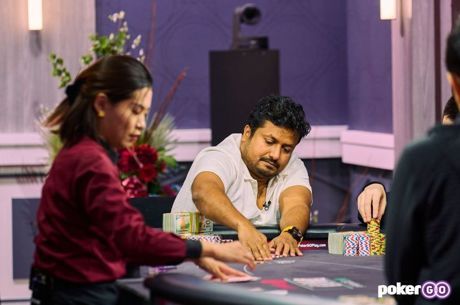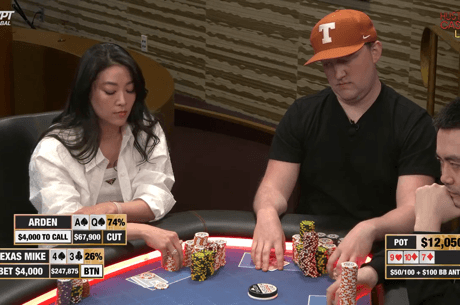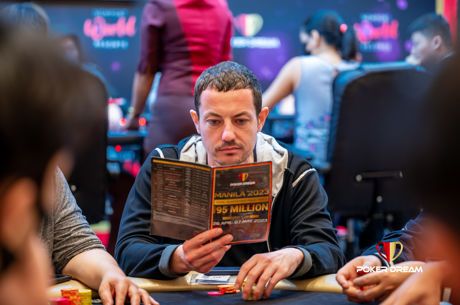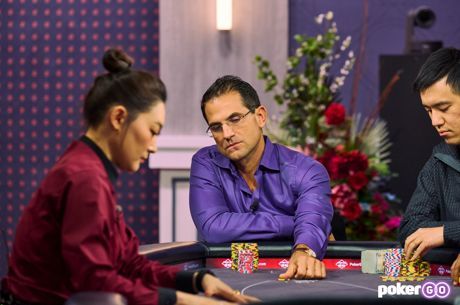Poker Book Review: Rolf Slotboom's 'Secrets of Professional Poker, Vol. 1'
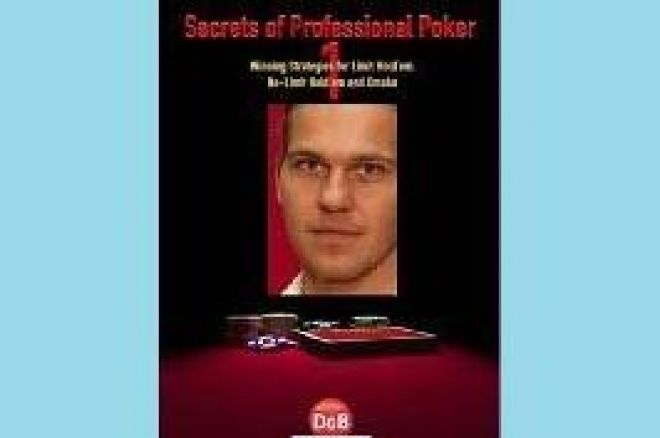
"I have always found it more important to come up with new and meaningful additions to poker literature rather than simply rehash old stuff written by others." Thus begins Rolf Slotboom's newest title, Secrets of Professional Poker 1, the first of a projected two-volume series from D&B Publishing compiling the best of the Dutch poker player and author's writings. What follows is a well-written, insightful collection of articles that fulfill Slotboom's prefatory promise not to reiterate so-called "received wisdom" but rather to interrogate various concepts and strategies in an effort to reach a more thorough understanding of decision-making at the poker table.
This initial volume collects 60 articles written by Slotboom over the last decade for various publications. The focus is on cash-game play, with the articles having been divided into three sections: Limit Hold'em, Hold'em: No-Limit vs. Limit, and Pot-Limit Omaha.
One particularly interesting (and valuable) aspect of the collection is the way Slotboom has revisited all of the articles in the light of changes in the way all three games (LHE, NLHE, and PLO) are currently being played. Many of the pieces have been revised, and several include new commentaries presented in footnotes that reflect reconsiderations in Slotboom's thinking caused by the advent of online poker, the increasing popularity of short-handed games, and an overall shift toward more loose-aggressive play than was the case when Slotboom first began playing poker professionally in 1998.
Slotboom's willingness to reengage with his own thinking and writing in this way is not only refreshing, but underscores one of the author's most important principles, namely, always to keep one's mind open to alternate answers — even to what might seem obvious questions. For example, early in the book, Slotboom presents his much-discussed limit hold'em quiz, including its famous (infamous?) analysis of a particular situation in which folding ace-king preflop is recommended. Follow-up articles discussing the controversial idea are also presented, which include Slotboom's forum discussions of the issue with various posters, one of whom is Mason Malmuth. To these articles, Slotboom has provided additional footnotes sharing new thoughts regarding the issue.
As the A-K discussion indicates, Slotboom is never hesitant to explore unlikely avenues, and one doesn't get too far into the book before realizing the phrase "Contrary to what some writers will tell you" is something of a refrain for Slotboom. It is important to note, however, that Slotboom's nonconformist approach is never pursued simply for the sake of being iconoclastic. Rather, the author is always careful to show the process by which he has come up with an unorthodox line, as well as how his take compares to traditional ideas. As his work has demonstrated, Slotboom is well-versed in poker literature, and his awareness of others' ideas — and how his ideas compare — is evident throughout Secrets of Professional Poker 1.
The limit-hold'em section covers a wide variety of topics, including a two-article discussion of starting hands, an extensive treatment of blind play, a list of common LHE vices, and another list of common leaks and how to plug them. There are a couple of articles concerning how best to deal with especially loose-aggressive players ("maniacs"), including one that presents reasons why the seat to the maniac's left may in fact not be the optimal one to choose. Slotboom's own style generally fits squarely in the tight-aggressive category, and from his anecdotes about particular hands one gathers he is probably even tighter than most. However, he frequently covers situations in which playing off one's tight image can work to one's benefit.
With his previous Secrets of Pot-Limit Omaha (2006), Slotboom had already made a significant contribution to discussions of PLO strategy. That book is perhaps best known for its presentation of a short-stack strategy — yet another example of Slotboom going against the grain — although it covers other strategies as well. The third and final section of his new book offers a useful addendum to that earlier work, offering a handful of his PLO columns not included there plus several new pieces written exclusively for Secrets of Professional Poker 1.
Articles appearing here cover a variety of topics, including several examining various representative PLO starting hands, a return visit to the list of "vices" from the LHE section here applied to PLO, another return visit (of sorts) to the issue of where to sit against a "maniac" (again, to his left may not be the best choice), as well as discussions of table image and "playing the player." Many of the pieces in this section feature Slotboom talking us through particular PLO hands he has played (more so than in the other sections), with the narratives all presented in the highly readable, astute manner familiar to those who have read his columns.
By the book's end, one discerns a clear consistency of approach adopted by Slotboom among all three of the games he covers, an approach that often involves beginning with a measured (or "tight") default strategy, then taking into account shifting circumstances in order to find opportunities to exploit one's apparently "tight" image profitably. It is crucial, of course, to develop the ability to read one's opponents and understand how best to adapt, a task for which Slotboom provides excellent guidance.
As its author had hoped, Secrets of Professional Poker 1 indeed represents a "meaningful addition to poker literature," not least because of the way it manages to cover thoroughly three separate games. Slotboom conclusively shows how the skill sets for these "flop games" overlap, thereby encouraging readers who perhaps specialize in one of the three to try something new. In fact, while the book certainly has much to offer any poker player, perhaps the book's ideal reader would be one who has experience with one of the games — limit hold'em, no-limit hold'em, or pot-limit Omaha — and is interested in getting started playing one of the other two.


